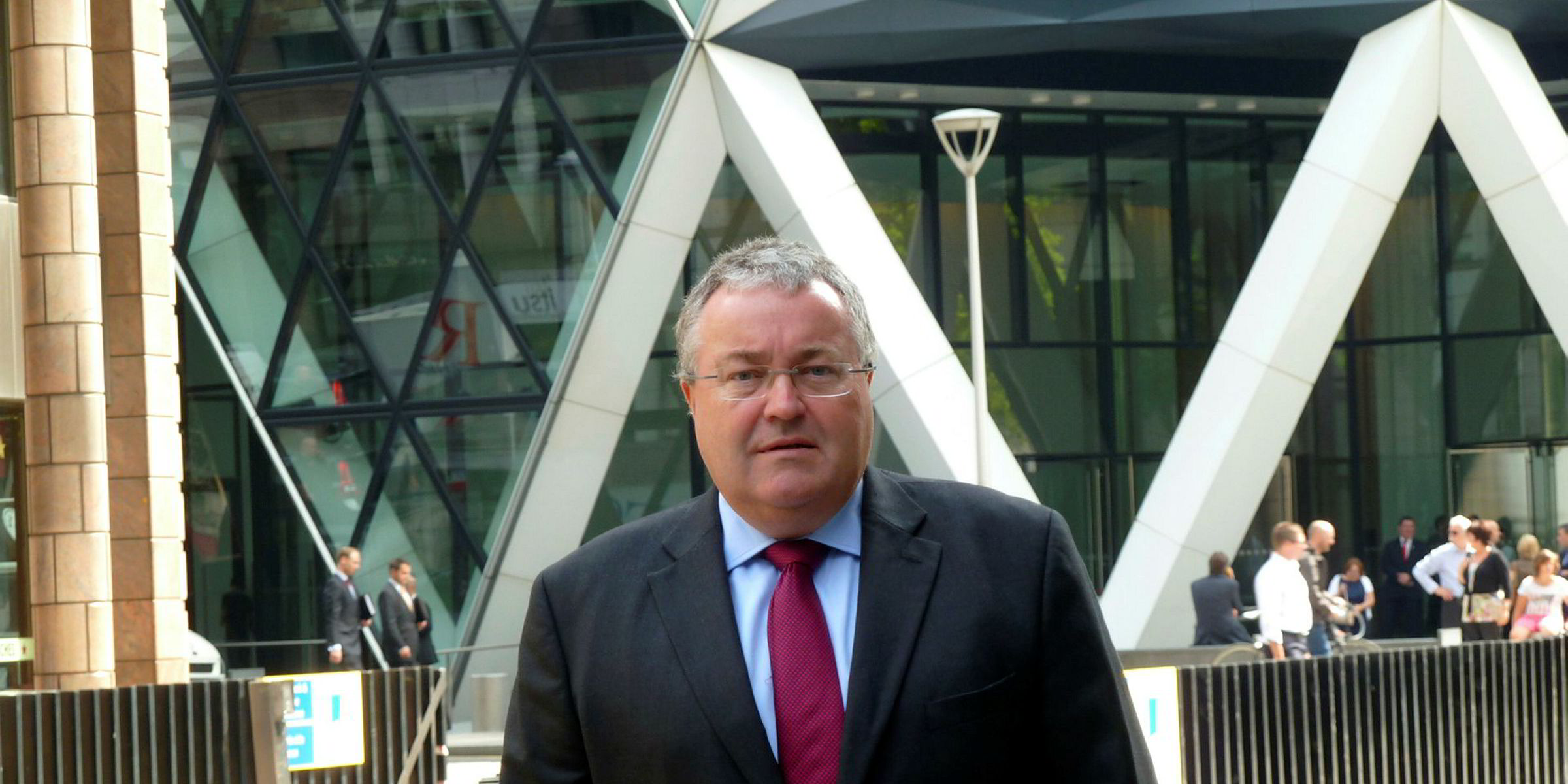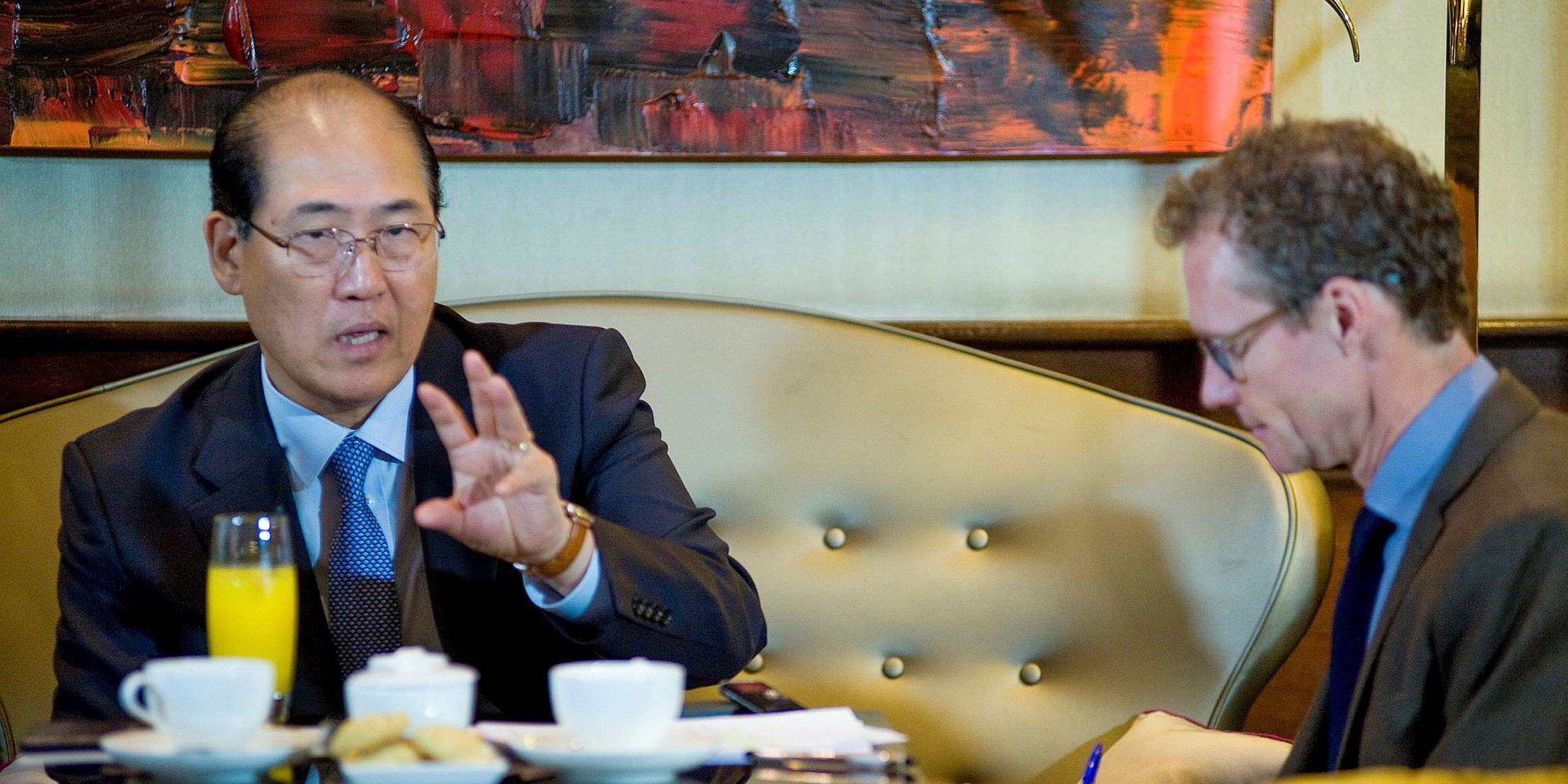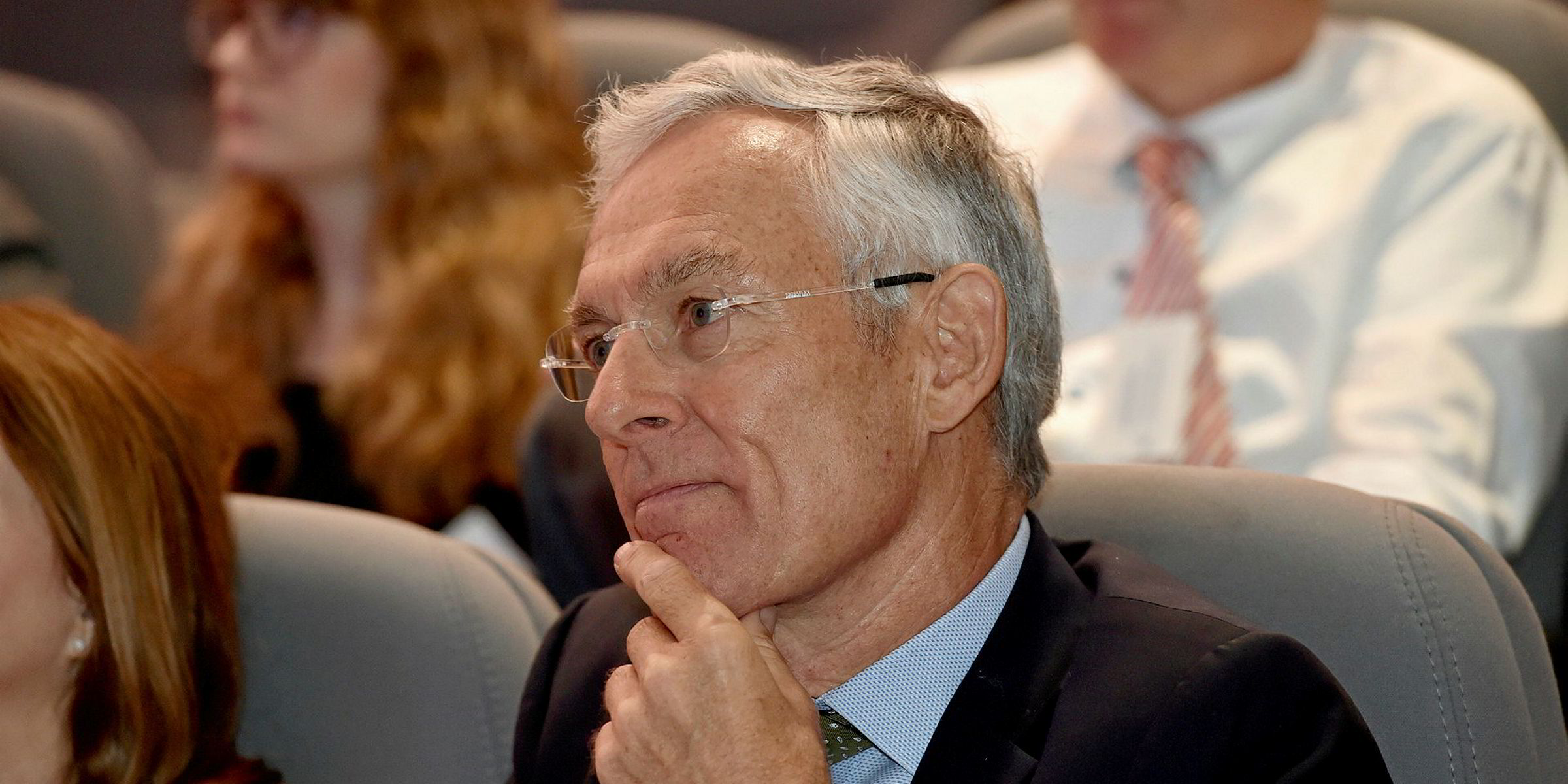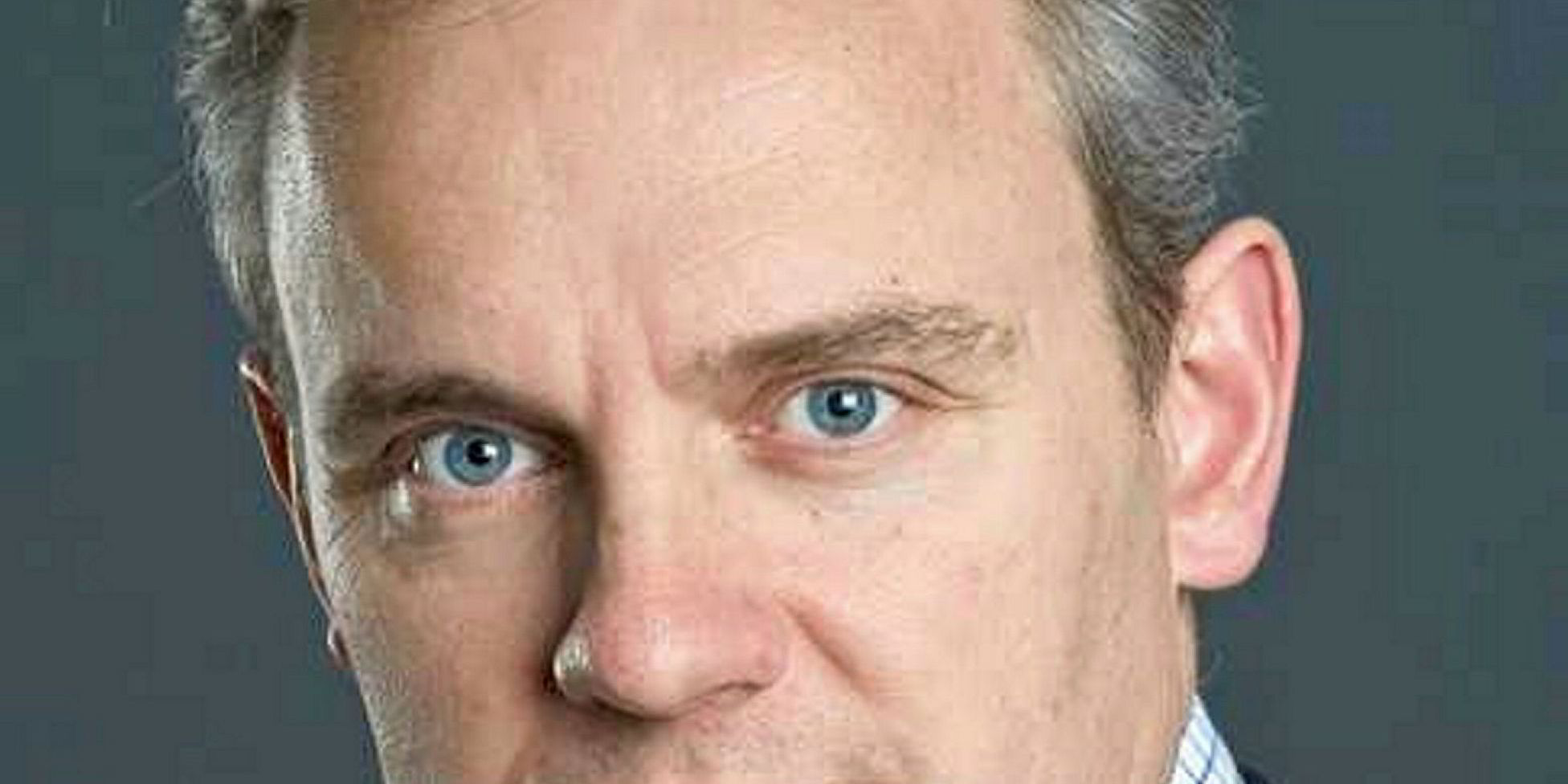Dieter Berg is president of the International Union of Marine Insurance and senior executive manager at Munich Re
"The shipping and logistics industry is taking a step into a new era where digitalisation will have a massive influence via autonomous ships, intelligent containers, electronic navigation and pre-emptive risk management onboard ships.
"The complete environment and expectations of our clients are changing and with that their needs from insurers. So there are a lot of opportunities to come up with new insurance products, solutions and services for our customers.
"The future will be less about compensating financial losses only and more about delivering value, services and consultancy to our clients. There is a strong need to innovate and to push the boundaries of insurability. The insurance industry needs to embrace digitalisation to cope with internal cost pressures in a very competitive environment.
"The total insured loss from the recent hurricanes has been estimated at around $100bn with marine insurance claims for pleasure craft, yacht [and] large cargo losses, from stock throughput and many static risks that have moved over the years from being property to marine risks.
"We have to acknowledge the impact of these huge losses. Some markets have already reacted by trying to achieve adequate prices and deliver the necessary return on capital to our shareholders while remaining a reliable partner for our clients."
Hugo Wynn-Williams is chairman of the International Group of P&I clubs and of Thomas Miller, the managers of the UK Club
"A particular challenge for the protection-and-indemnity clubs over the year ahead is responding to Brexit, both in terms of market access and establishing offices in the European Union.
"It seems clear that we are not going to have access to the ‘single market’, so those dependant on the UK for passporting access to the EU will need to begin the process of applying for insurance licences early in the new year. Equally, those based in the EU will have to begin a similar process to operate in the UK.
"The claims environment from an International Group point of view remains benign but we need to have a conversation with states about preserving limitation rights under international conventions.
"It is incumbent on the P&I clubs to deliver the solutions owners want and ensure the International Group remains relevant and fit for purpose.
"Longer-term safety and the preservation of life remains a foremost objective, so we need to continue to play a full part in efforts to improve safety at sea, in particular the threat posed by cargo liquefaction."

Peter Townsend is head of marine for AmTrust’s syndicate 1206
"A year ago in an article in TradeWinds, I compared the marine insurance market to an old car with many faults. Underwriters' response was to turn the radio up because if you can’t hear the problems then there can be nothing wrong.
"I was at a meeting when the question was asked 'Do you expect rates to harden in the next 12 months?' Despairingly the respectable shipowner at the meeting believed rates would go up higher than three underwriters who were asked that same question.
"We all have to make our own individual decisions as to how we address the perennial poor results. But, if we pat ourselves on the back for getting a 2.5% or 5% rise we are deluding ourselves. I can only speak on the London market figures, but if the incidence of claims for 2018 tracks 2017, we don’t need a 5% rise. We need a 35% rise just to break-even.
"But it does appear that the market sentiment may be changing. Many underwriters are saying 'no' and are prepared to lose business with a tougher stance. Brokers’ are finally admitting that even clean renewals are more challenging now. The danger, we are told, is that we will lose our good business. Other than the moral risk there is no such thing as good or bad business. There is well priced or badly priced business. Is a good risk badly priced still a good risk?"
Kitack Lim is the secretary general of the IMO
“Continuing our response to climate change will be a key priority for the IMO in 2018. The member states have pledged to deliver a comprehensive strategy for reducing greenhouse gas emissions from ships, and a vital landmark in this process will be an initial strategy to be adopted.
"Integrating advancing technologies into the regulatory framework will be another important topic for us. We need to ensure the benefits are balanced against safety and security concerns, international trade and, not least, their impact on personnel, both on board and ashore.

"We will also seek to ramp up work on frontier issues such as cyber security and autonomous shipping.
"A non-technical issue that is very important to highlight is the celebration of IMO’s 70th anniversary. The IMO is planning a series of events to commemorate this landmark. The theme for 2018 is 'Our heritage: better shipping for a better future'. The theme will provide an opportunity to showcase how IMO has adapted over the years to continue its leadership role as the global regulator of shipping."
John Ramage is chief operating officer of US-based International Registries, which manages the Marshall Islands ship and corporate registries
“While there are positive signs that the market is improving, there is still unfortunately a lingering hangover from the long period of low freight rates, which will prove a challenge for owners and industry stakeholders going into 2018.
"The IMO plays a key role in the international regulatory framework and encourages harmonisation and coordination so consensus can be obtained. Shipowners are faced with a lack of uniform approach; we are for multilateralism. The International Convention for the Control and Management of Ships’ Ballast Water and Sediments came into force in September 2017 and, while there has been more clarity in the regulatory sphere, a significant issue looms with respect to the reliability of equipment and availability of spares. This will certainly be a challenge for the industry in 2018.
"Flag states will need to continue to work closely with these stakeholders to ensure service disruptions can be held to a minimum so the ships can keep moving.”
Esben Poulsson is chairman of the International Chamber of Shipping
"The health of the shipping industry is closely aligned to that of the world economy, and as we enter 2018, it appears that the global economy is enjoying one of the best years of the past decade, with GDP [gross domestic product] figures up across the board.
"Consumer confidence and the strength of the PMI index, especially more recently in the EU, are also positive signals. Accordingly, I believe the 2018 outlook is positive for the main segments of the industry — dry bulk, tankers and containers — with the usual caveat of avoiding over-ordering.

"That said, what has been positive for dry bulk and containers, especially, is that rate improvements have been demand driven and, while the tanker segment has also seen increased demand/consumption, any rate improvements have been held back by excessive tonnage supply — a situation I expect will improve in 2018 as deliveries in this segment will see a reduction."
Deal volume was closer to $3bn than to $2bn in 2017, and in 2018 it should pass $2bn again, Fang says.
Charo Coll is president of the International Salvage Union
"One thing is certain about 2018: there will be marine casualties. Some will be simple cases — perhaps mechanical failure. Others will be much more complex and require intervention by experienced salvors to prevent a disaster.
"Despite improvements in safety, training and navigation, accidents at sea cannot be eradicated, largely because of the human element.
"During 2018, the ISU [International Salvage Union] will not be alone in considering the issues of autonomous ships and cyber security. Our focus will naturally be in the context of marine salvage. We will also work on the issue of containership fire safety.
"Members of the ISU are often the only agency available to fight these dangerous fires and ISU supports the International Union of Marine Insurance in its efforts to bring about improvements. We also look forward to seeing the next set of salvage industry statistics to understand whether current depressed revenues are a 'blip' or a trend."
Knut Orbeck-Nilssen is chief executive of DNV GL's maritime division
"It is clear that digitalisation will continue to gradually transform shipping and change the way classification societies work.
"DNV GL launched several major digitalisation initiatives recently, including the rollout of the IMO-compliant electronic class and statutory certificates across our entire fleet. By the end of 2017, more than 30,000 electronic certificates had been issued. I expect this trend to accelerate in 2018 and electronic certificates to become even more widely used in the shipping industry.
"Another development will be a growth in the use of big data. DNV GL’s Veracity open data platform helps to bring new insights and value to the maritime industry by making data sets available for asset owners and operators to share with third parties in a controlled manner. Based on the very positive feedback from leading maritime companies on Veracity, we expect the use of such data platforms to continue to develop in 2018.
"At the same time, the cyber security of maritime assets is a topic that is growing in importance. Owners and operators are now seriously contemplating third-party verification of their assets’ cyber safety, whether during new build construction or for vessels in operation. This is an area where we foresee increased demand over the next few years as the industry gains awareness of the vulnerabilities and related cyber threats to their business."

Nick Shaw is partner and global head of shipping at UK law firm Reed Smith
"The maritime industry is entering a dynamic phase. From blockchain technology to automated ships and greater use of positioning services, technological advancements present both opportunities and challenges for participants in the sector.
"In 2018, we can expect an increased number of partnerships between shipping companies and new high-tech entrants to the market. This trend will be particularly prevalent as parts of the industry move towards an end-to-end supply chain model.
"However a word of caution. With more data and technology onboard ships, comes more risk. 2017 saw high-profile cyber attacks on ports, terminals and other shipping players. Prevention is of course the best cure and this in turn requires significant investment in technology and training to minimise exposure.
"Further, with the European Union’s General Data Protection Regulation entering into force on 25 May 2018, there will be a rise in the requirements for how data is processed, stored and used, as well as heavy potential penalties — €20m ($23.6m), or 4% of annual turnover — for non-compliance.
"From a legal perspective at both a national and international level, I foresee a struggle for the lawmakers to keep up with our ever-changing industry. Passing laws and international conventions takes consultation and time, something which is becoming increasingly precious in the high-tech shipping world of the near future."



